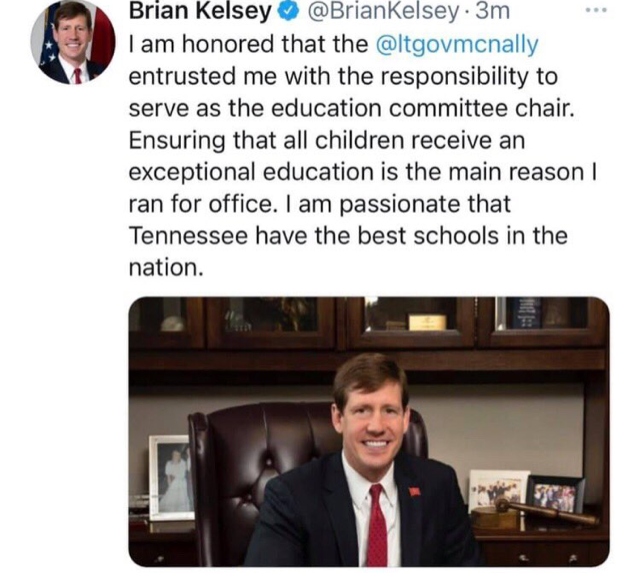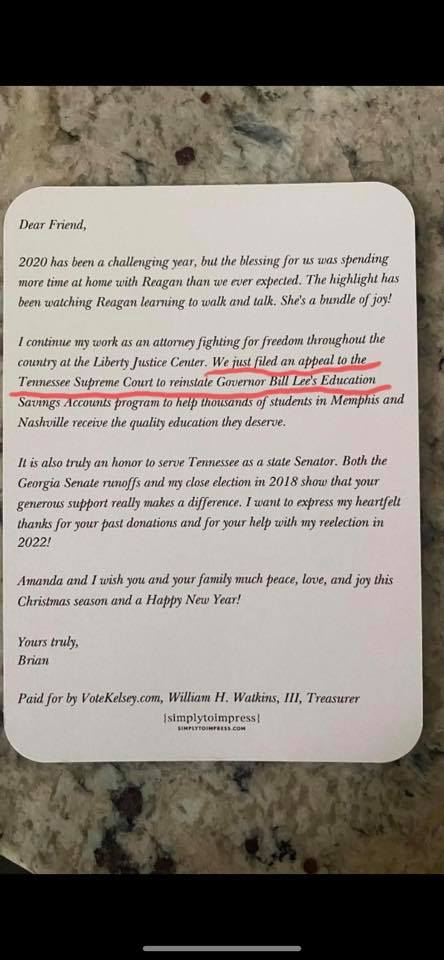At the end of this nice, happy story welcoming a new reporter to the education beat at WPLN, there’s a very interesting sentence:
Nashville Public Radio thanks the Thorne Family Charitable Fund, the Scarlett Foundation, the HCA Healthcare Foundation, the Joe C. Davis Foundation and the Andrew Allen Foundation for their generous support of our education beat.
It’s great that the education beat has some solid financial support. What’s noteworthy, though, is that two of the five sponsors of education news are also hard core privatization advocates.
First, there’s the Scarlett Foundation. This group, headed up by Joe Scarlett, is solidly in the privatization camp. Plus, as the Scarlett Foundation’s page notes about their board chair:
He serves as chairman of the Scarlett Hotel Group and vice-chairman of the Beacon Center of Tennessee.
Yes, THAT Beacon Center – the conservative group pushing policy schemes like school vouchers and opposing meaningful investment in public schools.
Of course, the Scarlett Foundation was also involved in Metro Nashville School Board elections in 2016 under the guise of a group called Nashville Rise:
Project Renaissance Co-CEO Wendy Tucker refused to identify who is currently funding the group’s efforts, saying some of the money people did not want to be identified.
$250,000 from the Joe C. Davis Foundation in Nashville, which boasts that it is focused “on increasing the supply of high-performing charter schools.”
Project Renaissance, of course, was the project of former Nashville Mayor and charter backer Karl Dean.
And, of course, there’s the The Joe C. Davis Foundation which was also involved in that 2016 campaign. Sitting on the board of the Davis Foundation is Bill DeLoache:
In an annual report filed with the Secretary of State earlier this month, Project Renaissance named several members to its board, all with ties to the controversial independently-run publicly-funded schools known as charter schools. Among them is Bill DeLoache, a wealthy charter school backer who also sits on the board for the Tennessee Charter School Center.
DeLoache has a long history of advocacy for charters:
[Charter school company] Beacon was founded as Alternative Public Schools Inc. in Nashville in 1992 by local businessmen Bill DeLoache Jr. and John Eason. Even after the company moved to Westborough, Mass., and changed its name to Beacon, DeLoache remained chairman.
The bottom line is this: Those who would privatize our public schools will go to any lengths to ensure they control the message on education issues. Kudos to WPLN for their transparency here. However, just hearing the list of names of foundations only tells part of the story. It’s important to understand the agenda advanced by those who want to appear to be philanthropic voices just supporting local public radio.

For more on education politics and policy in Tennessee, follow @TNEdReport
Your support – $5 or more – makes publishing education news possible.









